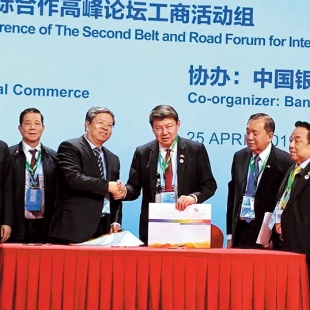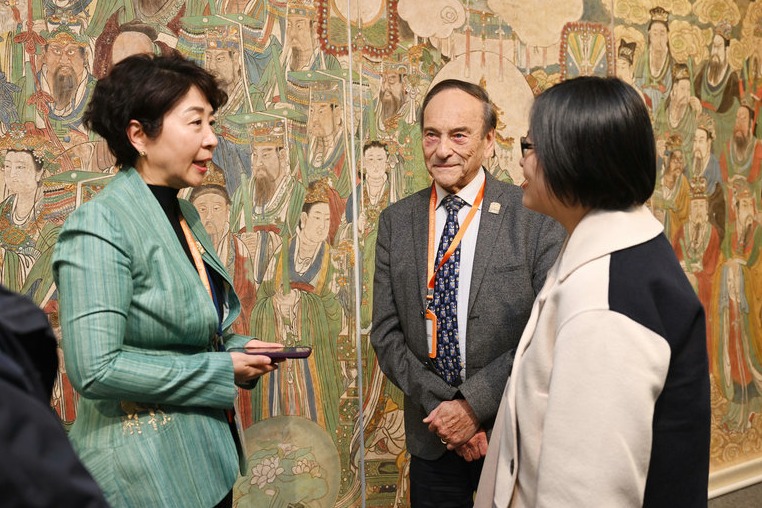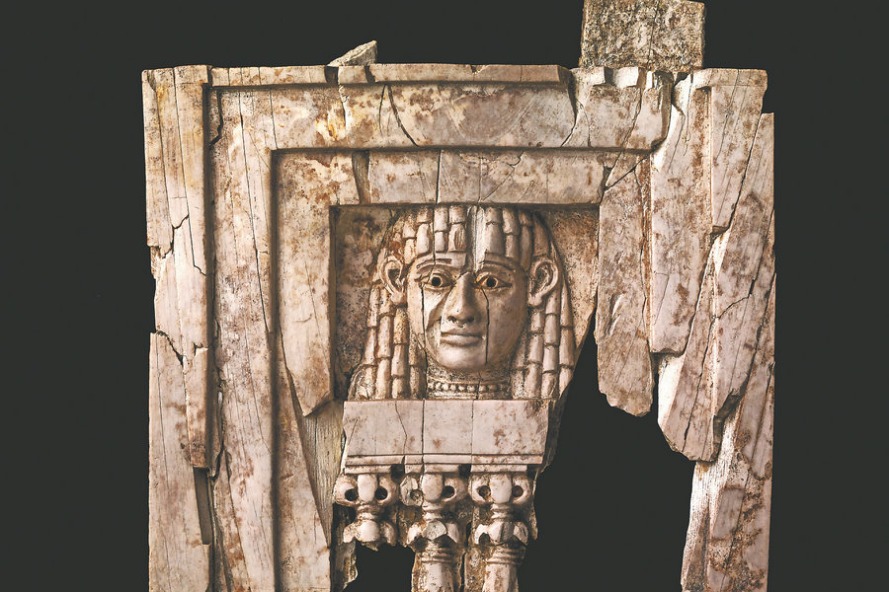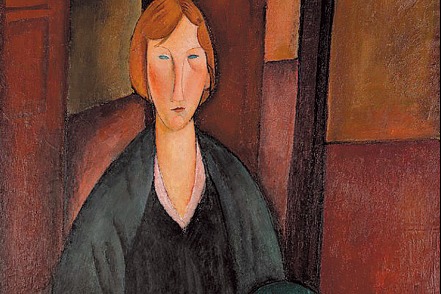China 'contributes to global progress'


With its strong will and visionary leadership, the Communist Party of China will continue to be a catalyst for world economic recovery and prosperity, says the president of the Federation of Filipino Chinese Chambers of Commerce and Industry.
"I am impressed by the high caliber, wisdom, vision, benevolence, long-term strategic thinking and commitment to reforms of China's leaders. Their leadership has uplifted China and has contributed to world progress," says Henry Lim Bon Liong, who is also the chairman of Philippine-based hybrid rice research and production company SL Agritech Corp and the Sterling Paper Group.
China has emerged as one of the top developers and producers of COVID-19 vaccines. The United Arab Emirates became the first government in the world to approve the use of Sinopharm's shots in December, followed by Bahrain.
During the opening of the 73rd session of the World Health Assembly last year, President Xi Jinping pledged that the COVID-19 vaccine development and deployment in China, when available, will be made "a global public good" as China's contribution to ensuring vaccine accessibility and affordability in developing countries.
Fast forward to today, Chinese-made vaccines have swept much of the world, sparking mass inoculation programs in dozens of countries, including in South America and European countries like Hungary and Serbia amid news of vaccine supply shortage and uneven distribution.
"July 1, 2021, marked the historic milestone of the 100th anniversary of the Communist Party of China, currently led by the enlightened President Xi. This auspicious event comes at a time when China is emerging as the only major world economy to have posted a positive growth rate in 2020, due mainly to the CPC leaders and the Chinese people having decisively and efficiently contained the pandemic," says Lim.
On the momentous occasion, Lim says, he looks forward to China accelerating its socioeconomic reforms, which include its positive approach in foreign policy of upholding multilateralism, dialogue and international cooperation.
In a grand gathering in February, Xi announced China's "complete victory" in its fight against absolute poverty, while underlining the need for unrelenting efforts to solve the problems of unbalanced and inadequate development and narrow the gap between urban and rural areas.
According to the World Bank, since China began to open up and reform its economy in 1978 its GDP growth has averaged almost 10 percent a year, and more than 850 million people have been lifted out of poverty. Today, China is an upper-middle-income country and is the world's second-largest economy.
The Philippines itself is one of the beneficiaries of the Chinese vaccines. The Southeast Asian nation received its first batch of donated Sinovac COVID-19 CoronaVac vaccines, officially kicking off the archipelago's vaccine program on March 1.
Philippine President Rodrigo Duterte publicly thanked the Chinese government for the friendship and solidarity-the hallmark, Duterte said, of the Philippine-Chinese partnership.
The federation, with its 170-strong member organizations, purchased 500,000 doses of Sinovac vaccines for "economic frontliners" to "lessen the burden of the Philippine government" and "safeguard those at the forefront of socioeconomic development".
The civic project was financed by voluntary donations and purchases by federation members and it partnered with major hospitals nationwide and the vaccinations were undertaken in auditoriums or places near these hospitals.
Complementary economies
Even if the road to recovery is confronted with many challenges, Lim says he believes the blossoming of Philippines-China diplomatic, economic and other cooperation will weather them all because "both countries share the same goals of economic development and stability for our Asian region".
He describes the Chinese and Philippine economies as "more complementary" rather than being competitors.
"The Philippines can export foods, minerals and other resources, also possible future manpower like English teachers and service industry staff, while China can export to us technology, investment capital, infrastructure," says Lim.
"The Philippine economy also needs China as our major trade partner, as a huge tourism and agriculture market, source of technological know-how and investment capital."
In 2019, China became the Philippines' largest trading partner, with Chinese investments in the archipelago reaching $962.6 million in 2018.




































